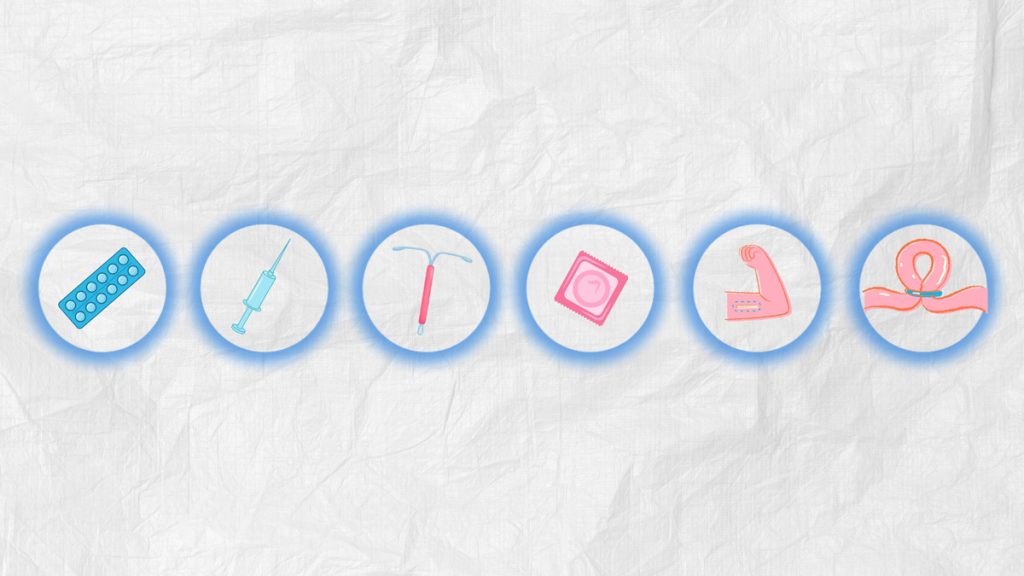Choosing an effective contraceptive method is crucial for family planning, reproductive health, and preventing unintended pregnancies. With numerous options available, understanding which method works best for individual needs is essential.
What Makes a Contraceptive Method Effective?
Understanding Effectiveness
Contraceptive effectiveness is measured by the percentage of women who experience pregnancy within a year of using a specific method.
Perfect Use vs. Typical Use
- Perfect Use: When a contraceptive is used exactly as directed, maximizing effectiveness.
- Typical Use: Accounts for human errors, such as forgetting a dose or improper use.
Factors Affecting Effectiveness
- Health conditions
- Consistency in use
- Proper usage techniques
The Most Effective Contraceptive Methods
1. Birth Control Pills
- Types: Combination Pills (estrogen & progestin), Progestin-Only Pills
- Effectiveness: 91% (typical use), 99% (perfect use)
- Pros: Regulates periods, reduces acne
- Cons: Must be taken daily, potential side effects, no STI protection
2. Contraceptive Injections
- Definition: Hormonal injection every three months
- Effectiveness: 94% (typical use), 99% (perfect use)
- Pros: Long-acting, no daily action needed
- Cons: Requires clinic visit, potential weight gain, no STI protection
3. Intrauterine Devices (IUDs)
- Types: Hormonal (releases progestin) and Copper (non-hormonal, toxic to sperm)
- Effectiveness: 99%
- Pros: Long-lasting (3-10 years), reversible, minimal maintenance
- Cons: Discomfort during insertion, risk of expulsion or perforation, no STI protection
4. Contraceptive Implants
- Definition: A small rod inserted under the skin releasing progestin
- Effectiveness: 99%
- Pros: Lasts up to 3 years, no daily action needed
- Cons: Requires professional insertion, potential mood changes, irregular bleeding, no STI protection
5. Condoms
- Definition: Barrier method preventing sperm entry
- Effectiveness: 85% (typical use), 98% (perfect use)
- Pros: Protects against STIs, easy to use
- Cons: Can break, may reduce sensation, requires correct use
6. Emergency Contraceptive Pills (Yuzpe Method)
- Definition: Pills taken after unprotected sex
- Effectiveness: 74% if taken within 72 hours
- Pros: Backup option in contraceptive failure
- Cons: Not for regular use, potential side effects
7. Sterilization (Permanent Methods)
- Male Sterilization (Vasectomy): Blocks vas deferens to prevent sperm in semen
- Female Sterilization (Tubal Ligation): Blocks or cuts fallopian tubes
- Effectiveness: 99%
- Pros: Permanent, highly effective
- Cons: Irreversible, requires surgery, no STI protection
How to Choose the Right Contraceptive Method
- Consider Your Lifestyle: Factors such as convenience, health history, and family planning goals
- Consult a Healthcare Provider: Expert guidance for personalized choices
- Trial and Adjustment: Trying different methods to find the best fit
There is no one-size-fits-all contraceptive method. The best choice depends on individual health needs and lifestyle. Consulting a healthcare provider ensures informed decisions for reproductive health.
Reference/s:
Centers for Disease Control and Prevention. (2023). Contraception and Birth Control Methods. U.S. Department of Health & Human Services.
https://www.cdc.gov/contraception/about/index.html
Cleveland Clinic. (2025, November 14). Can Your Birth Control Double as Emergency Contraception? https://health.clevelandclinic.org/birth-control-and-morning-after-pill
Mayo Clinic. (2023). Birth control options: Things to consider.
https://www.mayoclinic.org/healthy-lifestyle/birth-control/in-depth/birth-control-options/art-20045571
World Health Organization. (2023). Family planning/contraception methods.
https://www.who.int/news-room/fact-sheets/detail/family-planning-contraception








